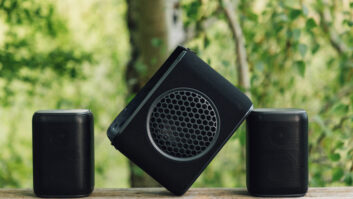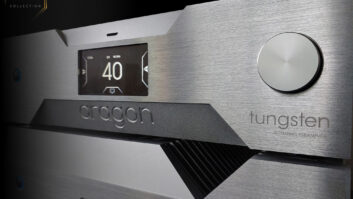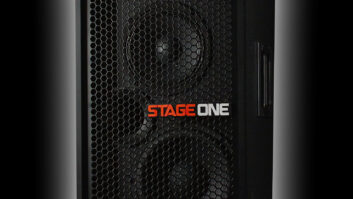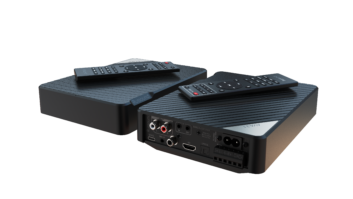MONTREAL –
Automotive Data Systems (ADS) plans
second-quarter shipment of the industry’s first OEM-integration
module that integrates aftermarket head units with
the infotainment systems of multiple makes and models
of vehicles.
“No one else has this now,” said marketing director Dan
Facciolo. “We’ll be doing for car audio what we did with
remote start and security systems.”
The $169-suggested iDataLink Maestro RR will retain
all of the functionality of OEM infotainment systems when
an aftermarket head unit is installed, the company said.
The Maestro RR will launch initially with ability to integrate
with Ford Sync systems, although such integration
will be limited to aftermarket head units
incorporating embedded iDataLink
software. For now, Kenwood
is launching five such head
units, all of which are A/Vnavigation
units, but other
suppliers could follow suit
when they launch next year’s
product lines, said Facciolo.
Sometime in the third quarter,
ADS will offer downloadable
firmware upgrades that will enable
the module to integrate any
brand of aftermarket head unit
with GM’s OnStar-equipped
telematics system and with
Chrysler’s U-Connect system.
The head units will not need embedded
iDataLink software to integrate
with those infotainments systems.
At the moment, no one else offers integration
solutions that let consumers add an
aftermarket head unit to an OnStar-equipped vehicle
without losing all OnStar functionality, Facciolo
said. No one else offers a U-Connect solution
either, he added.
Also in the works are firmware upgrades to maintain
factory infotainment features in Toyota, VWs, Mazdas
and Hyundai vehicles, he said. The module could also be
programmed in the future to be compatible with potential
OEM databus changes.
For each make and model vehicle, the Maestro RR module
will have to be paired with a different t-harness to plug
into specific vehicles’ wiring systems. The t-harnesses will
be priced from a suggested $29 to $35.
The integration module will also retain use of factory
steering-wheel-mounted analog and digital controls.
In Ford and Lincoln vehicles equipped with Sync, the
Maestro RR module will retain Sync’s voice control over
such factory features as outboard satellite-radio tuners,
Bluetooth hands-free, Bluetooth audio streaming and
connected media players plugged into the factory’s USB
connection.
The module will also retain Sync touchscreen functionality
on the touchscreens of compatible Kenwood heads,
retain control of OEM features via the factory’s steeringwheel-
mounted controls, retain use of the factory satelliteradio
tuner, and enable the compatible Kenwood heads
to display metadata from MP3 players connected to the
factory USB port.
In addition, drivers will be able to use Sync’s voice control
to control the Kenwood head’s source switching, and
drivers will be able to control Kenwood head-unit functions
from the factory steering-wheel controls.
The module plugs into the Kenwood heads’ SiriusXM
port, which normally connects to a universal SiriusXM
satellite-radio tuner.
The ADS module will be less expensive than aftermarket Sync-integration kits that cost around $300, require
the installation of a separate but included LCD display
to control Sync features, and require users to keep the
head unit in aux-input mode to get audio alerts of incoming
cellphone calls, Kenwood and Facciolo said.
In vehicles other than Fords and Lincolns, here’s
what factory features will be retained with a Maestro
RR install:
GM:
OnStar, factory door chime, Bluetooth, Bose
amplifier, OEM XM radio and steering-wheel controls;
Chrysler:
OEM Bluetooth and steering-wheel interface;
Toyota:
Factory JBL amplifier retention and
steering-wheel controls;
VW/Audi:
Satellite-radio tuner,
steering-wheel interface,
and Media Player’ feature,
which plays music from an
external USB source;
Mazda:
OEM Bluetooth,
satellite radio, OEM amplifier
and steering-wheel controls; and
Hyundai:
OEM Bluetooth, OEM
amplifier with SP/DIF retention and steering-
wheel controls.
In a separate product launch,
ADS plans a dedicated programmable
steering-wheelintegration
module designed to
work with the analog steeringwheel
controls of vehicles made
in the past 10 years. That module,
called the Maestro SW, will be
priced at a suggested $99 and will
work with most aftermarket radios
that feature wired steering-wheel
inputs. It ships in the second quarter. No tharnesses
are required.
Although other companies have universal steering-
wheel-control interfaces, ADS’s solution adds the
ability to make a volume button do double-duty as a
mute button by pressing and holding, the company
said.
With the launch of the two Maestro SW and RR
modules, ADS is entering the audio-interface market
for the first time, having for the past six years offered
universal interfaces that enable aftermarket security/
remote-start systems to interface with the digital databuses
of many vehicles, whereas other suppliers offer
vehicle-model-specific interfaces, ADS said.













